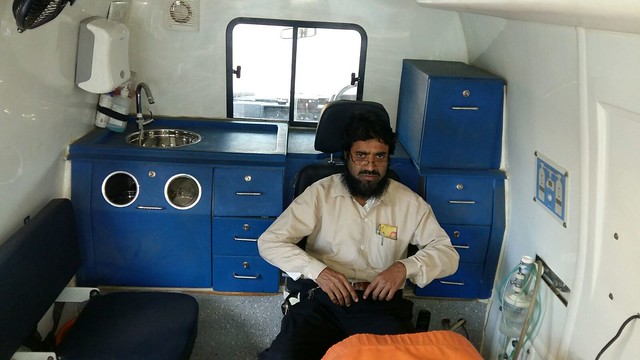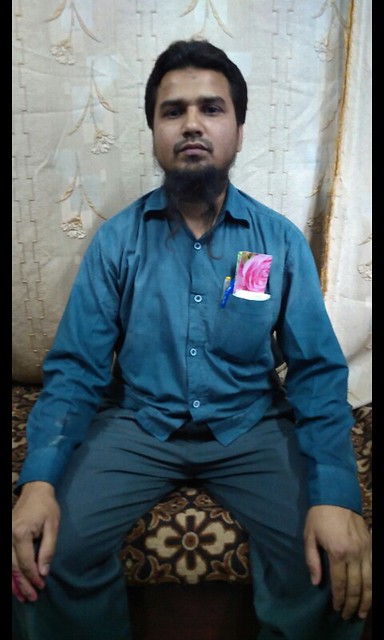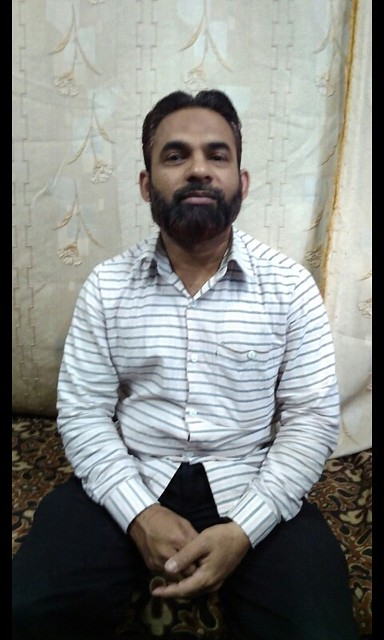In the second of the three-part series on Malegaon,we look at how the lives of Muslim youths were systematically destroyed after the September 2006 blasts: first, they were wrongly accused of orchestrating the blasts and second, even after they were granted bail, the terror label refuses to leave them in peace.
By Special Correspondent, TwoCircles.net,
Malegaon (Maharashtra): The Malegaon blasts did not just end lives of innocents; it had an equally disastrous impact on the people who survived it. Seven youth from the textile town of Maharashtra, who were accused of causing the blasts which left 37 dead and 125 injured, were released on bail four years ago. However, as they have found out, if it was difficult to shed the terror tag, it is equally difficult to start a new life after release from jail too.

Salman Farsi
The reactions to the September 2006 blasts, at least from the government, were predictable: Islamic extremists were accused of the blasts, and two months later, nine Muslim youths were arrested by the Maharashtra ATS for their alleged role in the blasts; seven out of these were from Malegaon. On December 21, 2006, ATS filed a charge sheet in the special MCOCA court against the nine accused and showed four others as wanted.
The nine people arrested–Noorul Huda Samsudoha, Shabbir Ahmed Masiullah, Raees Ahmed Rajab Ali Mansuri, Salman Farsi Abdul Latif Aimi, Farogh Iqbal Ahmed Magdumi, Mohammad Zahid Abdul Majid Ansari, Abrar Ahmed Gulam Ahmed, Mohammad Ali Alam Sheikh and Asif Khan Bashir Khan–were about to find how difficult it is to shed the terror tag, even if there is little to prove their guilt.
In 2010, Swami Aseemanand, an alleged Hindu extremist, confessed in the Mecca Masjid blast case that 2006 bomb blasts at Malegaon were the handiwork of Hindu radicals. His confessions lead to the arrest of four Hindu radicals by the National Investigation Agency. Subsequently, in November 2011 these nine Muslim youths were granted bail as NIA did not object to it.

Noorul Huda
Apart from Mohammad Ali Alam Sheikh and Asif Khan Bashir Khan, who were also accused in 7/11 Mumbai train blasts, the other seven were released from prison at the end of 2011.
But bail was not a cause of celebration. Even now, these accused have to appear on court hearing dates and their discharge application is pending before court since 2012.
New lives, but the terror tag remains
The lives of all the seven took a different course after their release. Salman Farsi, one of the accused is currently working as a Unani doctor with Bharat Vikas Group (BVG) as an emergency medical service officer for the Maharashtra Emergency Medical Services in Nampur, 30 km from Malegaon.
As a part of his duty he stablises people facing medical emergencies and then drives them to the nearest hospital.
After coming out on bail, he first tried starting a business but could not succeed and hence joined BVG. Now, he spends six days of the week away from family at Nampur and spends Sunday with his family in Malegaon.
“Life after bail has been a struggle. I have family responsibilities owing which I am working with BVG. Some people still prefer to stay away from me due to the false allegations against me”, Farsi says in a sorrowful voice.

Raees Ahmed
Farsi is the only accused who has not filed ‘discharge’ application before trial court: instead, he filed an application to scrap all charges before Bombay High court. He has not engaged any lawyer to argue this application and hence it is pending there.
Another person, Raees Ahmed, makes a living by selling imitation jewellery and other ladies items at his rented shop near the busy Anjuman Chowk market of the town. At the time of his arrest, Raees used to sell batteries along with his brother in law Shabbir Masiullah at a rented shop inMalegaon. Masiullah was also made accused in the same case by ATS.
Raees, a soft-spoken man, says, “After coming out on bail, I had no guts to continue the same business because ATS made the same as a ground to implicate me in the case”.
“At the back of our shop, ATS officers mixed some powder with the soil and claimed that explosives used in the blasts were stored there. We had never ever thought that blasts that took away so many lives of our own townsmen would be blamed on us”, dejected Raees says with an unexciting tone.
The subsequent period spent in jail has impacted Raees in a substantial manner. After coming out on bail in 2011, Raees decided to live a reserved life. Reason? “I try not to recall jail days, but unfortunately when I meet people, they curiously ask about false allegations and what I used to do in prison”.
The accusations also impacted Raees’ future plans. “I can do much better in business but I have decided not to stretch myself further for earning till I am fully discharged from the case”, Raees says, sitting at the counter of his shop.
Shabbir Masiullah died in an accident on March 2, 2015 when he was constructing a house and a compound wall collapsed on him and his son after a JCB machine mistakenly hit that wall. He is survived by wife and three children.
Equally disturbing is the fact that some of the accused faced discrimination from their own community. Muhammad Zahid was imam at a mosque in Phoolsavangi village of Yavatmal district from where he was picked up by ATS in November 2008. After bail he again worked as an Imam at a mosque in Malegaon. However, the mosque committee did not allow him to continue after couple of months due to unwarranted limelight the mosque had earned due to Zahid.
An Imam who is not in a mosque has little else to do: no wonder, then, that Zahid is now left with selling fodder in the morning and firewood in the evening to earn livelihood. He got married months before arrest and his wife had a miscarriage when he was in jail. Now he has a three-year-old son.
“Nobody wants to employ me in the mosque due to allegations against me. I have no money to start a business. Life is very difficult for me but I am doing whatever little I can, “Zahid says.
Like the other accused, Zahid also has to go to Mumbai court for hearing, which is scheduled every 15 days. Whenever he is short on money, he does not go to court and hands over exemption application to co accused who then file it before court on his behalf or give it to their lawyer.
“To mark presence in court at Mumbai (for hearing) cost Rs. 400 therefore I skip dates and ask my co accuse and lawyer to file exemption”, Zahid explains his arrangements during hearing dates.
Zahid was arrested in the case four months after his younger brother Muhammad Javed was arrested by ATS in Aurangabad Arms haul case in 2006. Javed was released on bail in 2014 after spending 8 years in jail.
Farogh Magdumi, another accused, is also Unani doctor who runs a four-room clinic and spends most of his time at the clinic. Besides Jamiat Ulama-e-Hind functionaries, he does not meet others except the people that visit his clinic. He has two children – daughter and son.
Noor ul huda Shamsudoha had been married for four months married when he was arrested by ATS. He is the nephew of Salman Farsi. After coming out on bail he is running power loom which is the traditional occupation of the town: in Maleagon, every 10th house has a power loom.
“It was not easy to start life afresh after spending five years in prison. A year passed by in answering peoples’ various queries and then I started power loom where I work hard to earn as much as I can to support my family,” Shamsudoha narrates.
He does not miss hearing dates and says, “I never file exemption even though attending court date is a double loss for me in respect of money because I have to shut power loom on that day. I do not miss because I fear if any contrast order is passed by court that may bring nightmare days back again”.
Two other accused, Asif Khan Bashir Khan and Mohammed Ali Alam Shaikh, are still in jail in connection with 7/11 Mumbai train bombings. Asif Khan has been sentenced to death while Muhammad Ali was sentenced to life imprisonment by special MCOC court on September 30, 2015.
Advocate Irfana Samdani, a senior lawyer from the town, stood all along with these accused till they were released on bail in 2011. Samdani continues to monitor progress in the case and often these accused meet her to enquire on the case proceedings. “We helped them get bail and filed their discharge application which is pending before court.” Samadani, who is sympathetic to the condition of these youth, adds, “I feel sad that I cannot help them in regards with employment and other issues that they are facing.”
Related: Part One:
Malegaon blasts victims and families seek justice, not compensation
